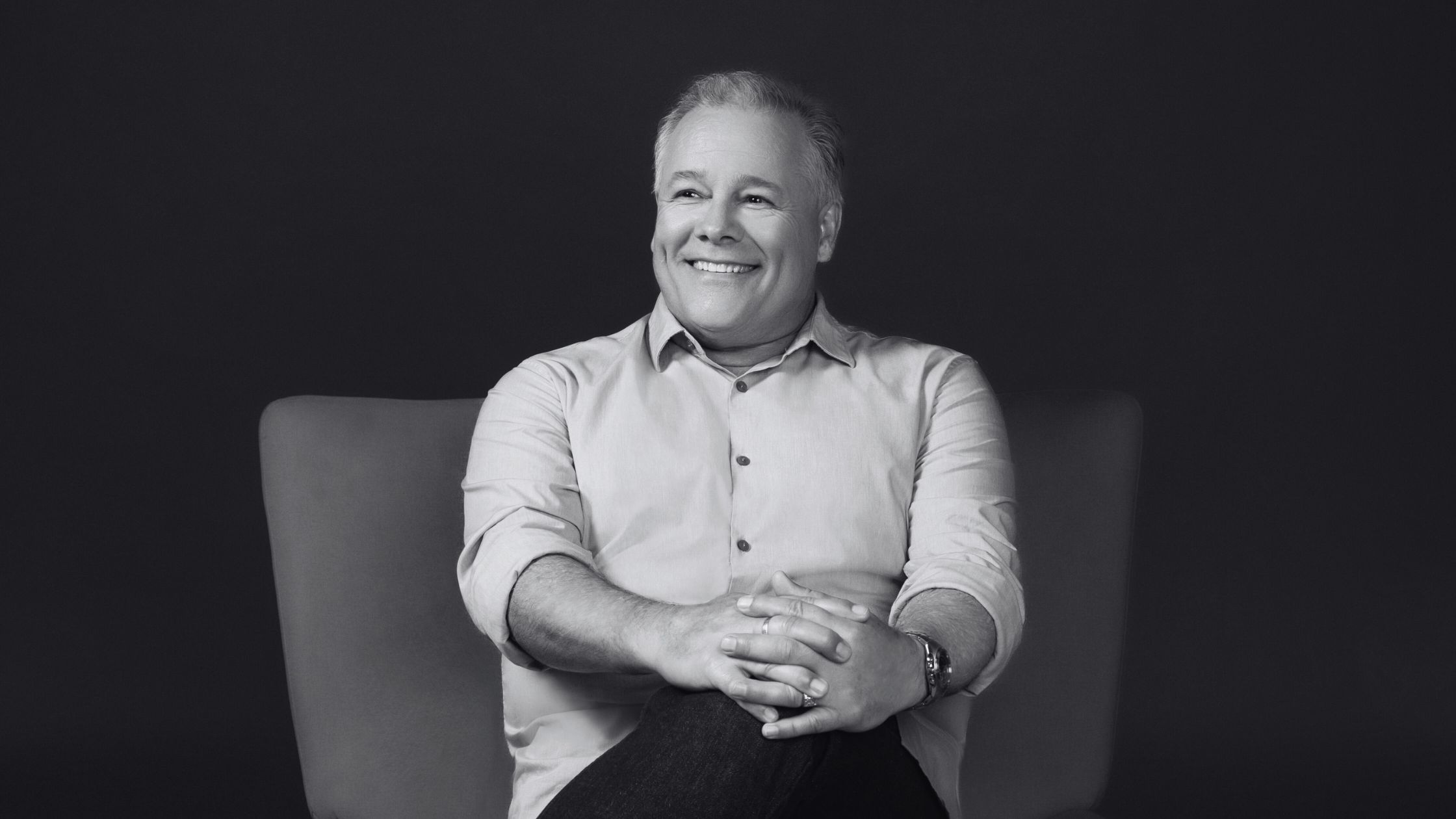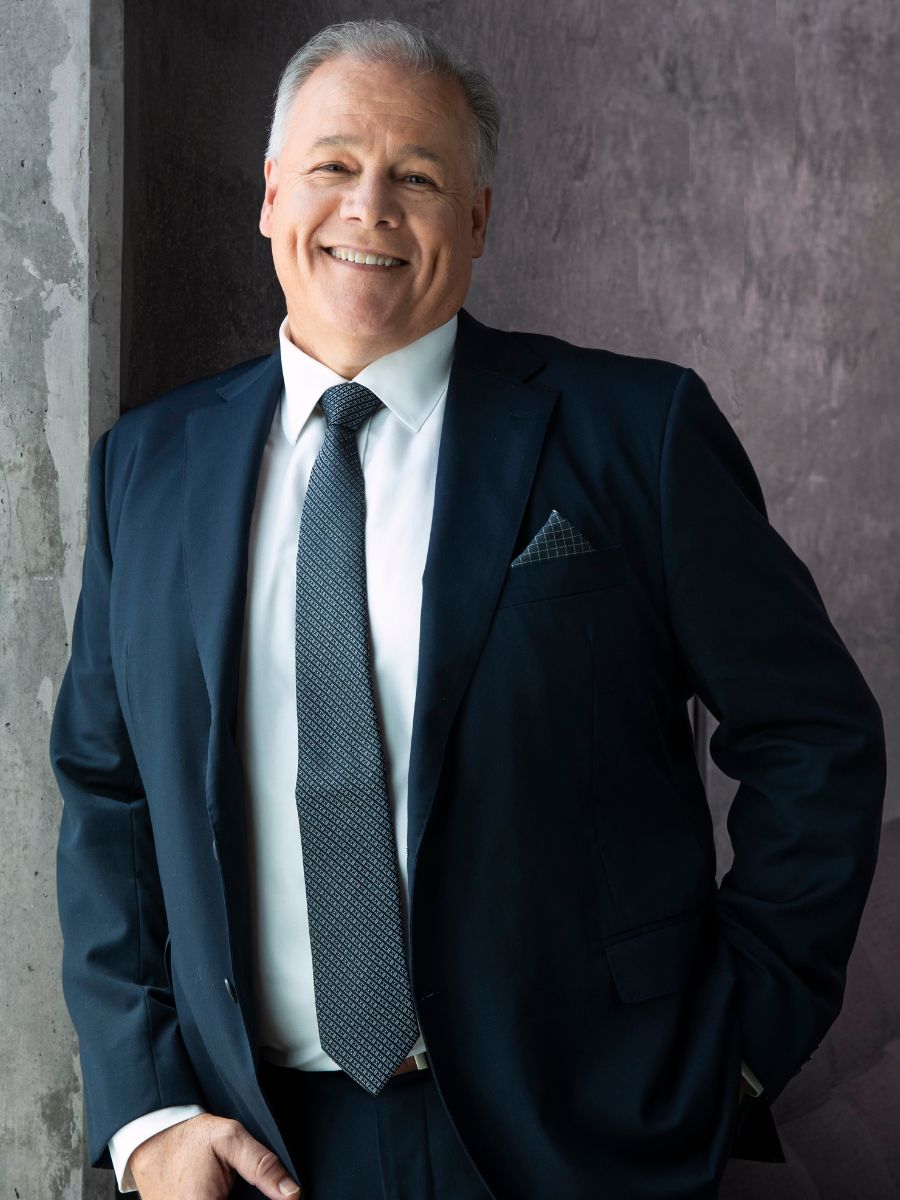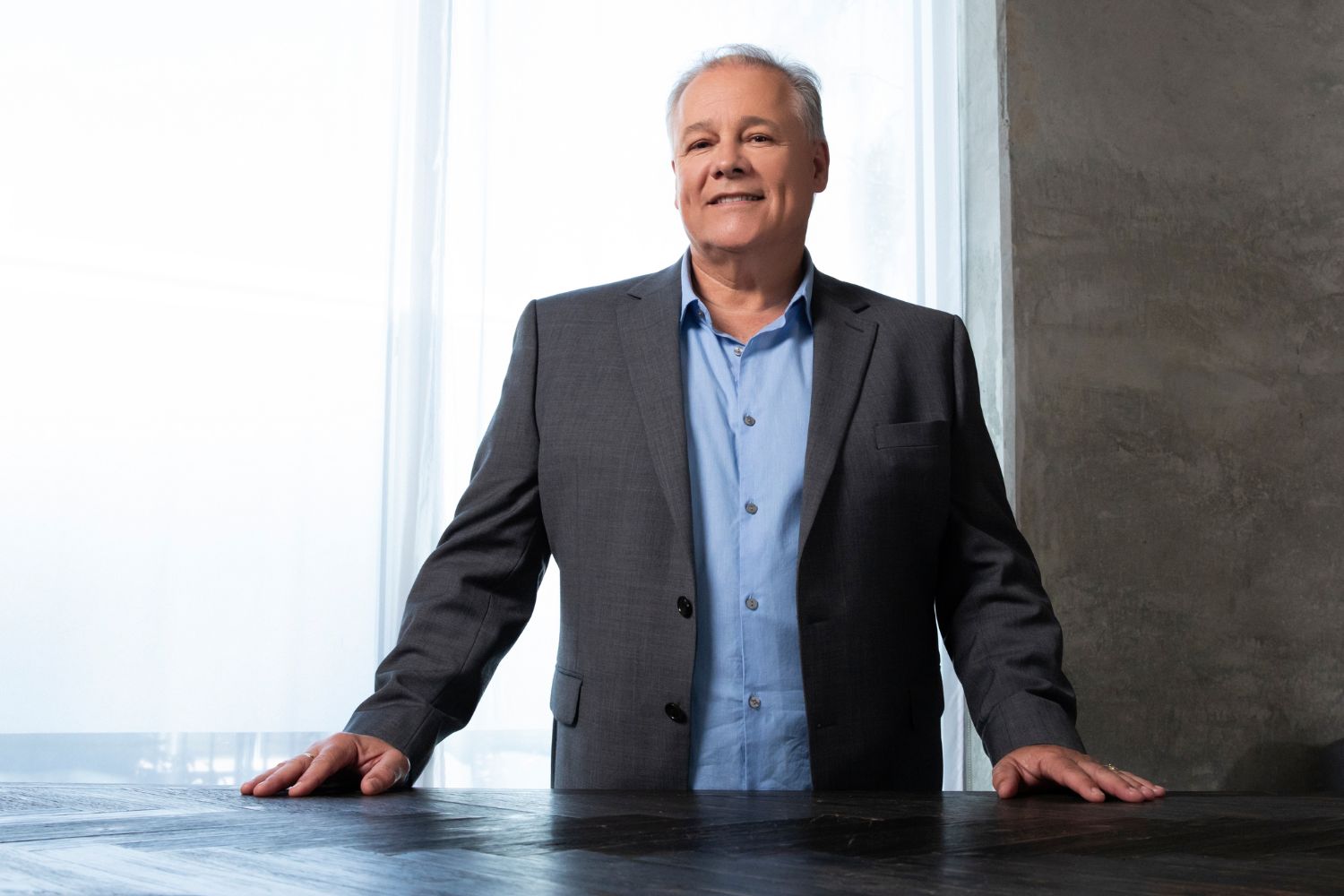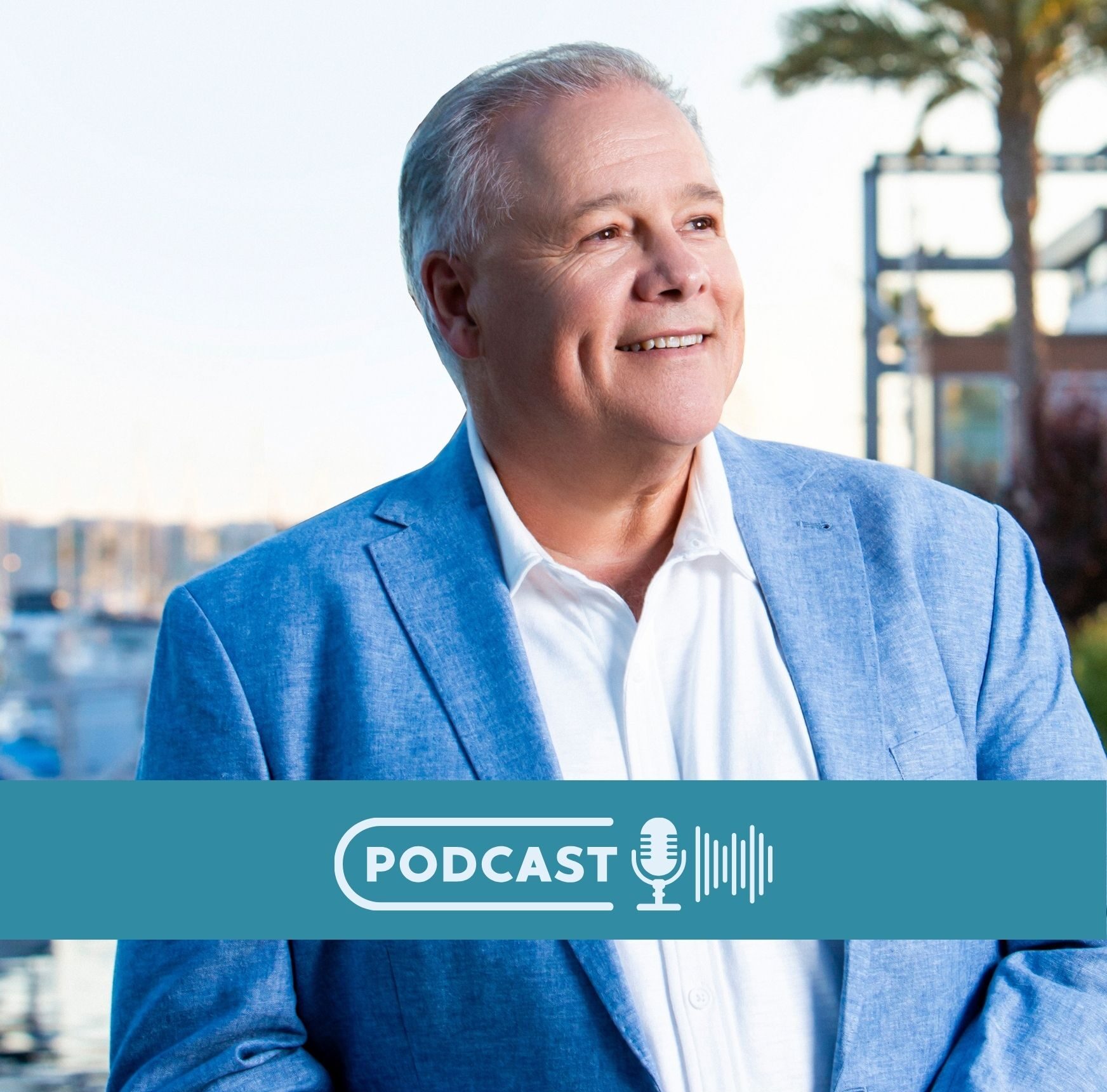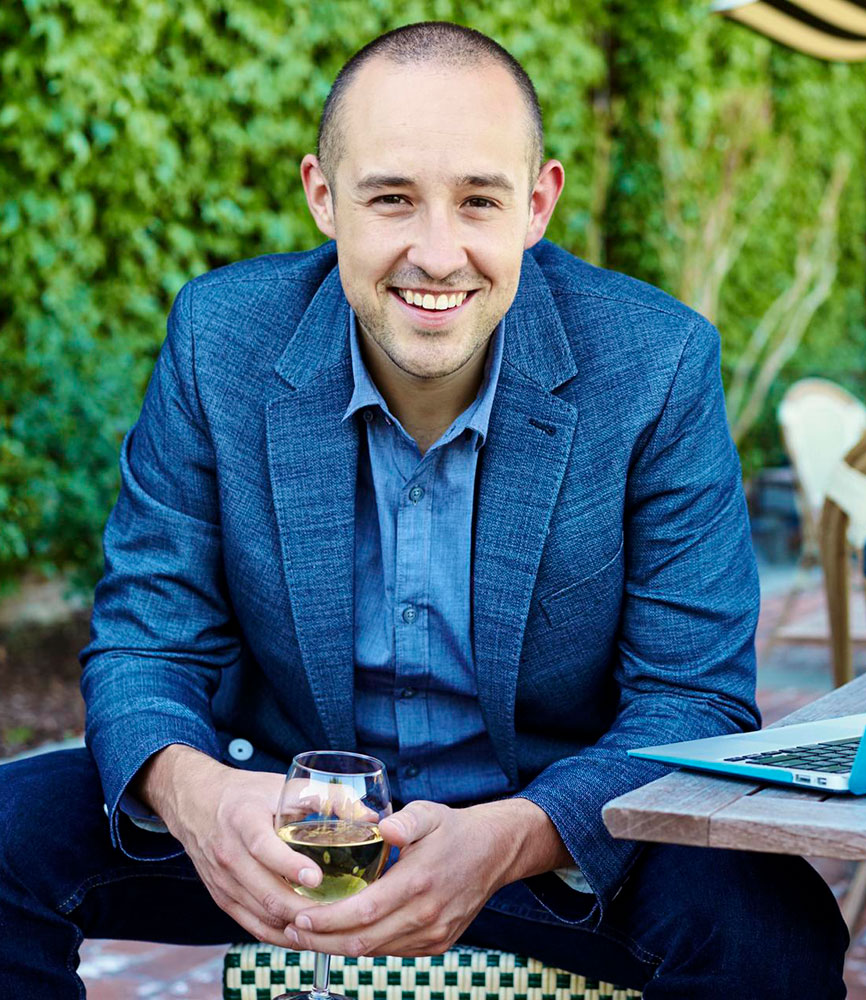I think we’re all wondering how AI, climate change, and technological disruption will reshape our businesses and the world.
And, my latest guest on The Wisdom Of… Show, Brett King takes us on a mind-expanding journey into what’s coming next.
Brett, named “King of Disruptors” by Banking Exchange magazine and the “Godfather of FinTech” by The Australian newspaper; has been seeing around corners for decades. As the founder of Moven (the world’s first mobile, downloadable bank), host of two influential podcasts, and advisor to governments on fintech policy, Brett brings a unique perspective on how technology, climate change, and changing social structures will reshape business and society.
Here are the key insights from our conversation that every forward-thinking business leader should consider.
First Principles Thinking: The Secret to True Innovation
One of Brett’s most powerful insights revolves around “first principles thinking” versus “design by analogy.” Most businesses innovate incrementally, making minor improvements to existing models, what Brett calls “design by analogy.” But transformative innovation comes from returning to first principles.
“The iPhone is a great example of first principles design,” Brett explained. “It doesn’t look like a Nokia banana phone… Steve Jobs presented it as a small computing device that happened to allow you to make phone calls.”
This approach allowed Apple to leapfrog design paradigms and break out of the competitive mold. As he observed in his Strategic Play Masterclass, this kind of thinking is what separates true innovators from those merely playing catch-up. The lesson for business leaders is clear: don’t just improve on existing frameworks; question fundamental assumptions about what your product or service actually is.
“Ultimately, if you start thinking about how healthcare transform with AI, it’s going to transform a bunch of areas,” Brett noted, applying first principles to another industry. “In 20 to 30 years time, we will think of the healthcare system that we have today as extremely primitive and error prone and ineffective, right? Comparative to what is coming.”
Persistence: The Superpower of Success
When I asked Brett about lessons from founding Moven, which was ahead of its time as the first mobile challenger bank, his answer was refreshingly straightforward: persistence is the key to innovation.
“If people were to ask me what’s the superpower of success, I would just say persistence,” Brett shared. “Most people have great ideas… but it’s hard to get funding or execute on the technology. And they get to a point where it’s almost there, but not working, and they say it’s too hard… But if you would just push through another few months, you could have made that breakthrough.”
I was curious about how he built teams around this vision despite being ahead of his time. Brett explained: “When people join a startup, they don’t join it… for the salary. Most people will take a hit on their salary if it’s something they believe in, if they see that being part of a change that’s really going to transform the industry… It’s exciting to be on the bleeding edge.”
The takeaway? Having a clear, unyielding vision and the persistence to keep working toward it every day, even when faced with seemingly insurmountable obstacles, separates successful innovators from those who fall short.
The Transformative Impact of AI
Perhaps the most thought-provoking part of our conversation centered on artificial intelligence. Brett believes AI and climate change represent the two most impactful issues to hit humanity in the last 10,000 years and we’re experiencing both simultaneously.
“If you were looking at the last 10,000 years of human history and you were to pick the two most impactful issues to the species in terms of philosophical thinking, I would pick AI and climate change as the two biggest events to hit the species in the last 10,000 years. And we’re seeing them both happen simultaneously. So that’s pretty crazy,” Brett observed.
AI will radically transform industries we think of as quintessentially human. In healthcare, for example, AI diagnostics will process millions of data points, including the most obscure and recent medical research—something no human doctor can match.
“Every year, the medical fraternity releases half a million medical journals. There’s not a single doctor on the planet that could read all that information and absorb it, and AI can,” Brett explained. “There is no environment where a human doctor will be able to outperform a doctor using artificial intelligence.”
This led to one of Brett’s most powerful statements about our future: “There are two types of people in the world: those using artificial intelligence to enhance their career or business, and those who are going to be replaced by the first type.”
It’s happening now. As Brett put it: “I’ve got a lot of friends who say, ‘I don’t want AI taking my job’… but I don’t think people realize it’s already too late for that. The market wants this and is putting trillions of dollars into this tech.”
The implications for business leaders are profound: embracing AI is essential for survival. This is exactly why on The Wisdom Of… Show, we explore these transformative forces with the world’s greatest thinkers—to give you the insights needed to navigate this rapidly changing landscape.
Beyond Capitalism: The Meaning Economy
One of Brett’s most provocative insights concerns how AI will transform our economic system itself. As AI increasingly replaces human labor across blue and white-collar sectors, our current economic model faces challenges.
“For 60 years or 70 years, we’ve been talking about robotics and AI as labor saving devices,” Brett noted. “Inadvertently, we’ve designed a technology that can replace humans in the workforce across both blue collar and white collar jobs, across every industry simultaneously.”
The implications are profound: “The more AI we put into the system, the less important humans are in the economy,” Brett explained. “The less effective capitalism becomes as an organizing principle for the way we run society.”
Its transformation. Brett referenced futurist Dave Shapiro’s concept of the “meaning economy,” where people work based on passion and purpose rather than necessity.
“When I ask you in 20 years time what you do, your answer will be: this is what I’m passionate about, this is what I think will change the world, this is what adds value to communities around me—not, this is the job I do to put food on the table.”
As I’ve seen working with leaders across industries, those who understand this shift from transaction to meaning are already positioning themselves for the future. In my Masterclass, we specifically explore how businesses can create both economic and meaning-based value in this changing landscape.
The Climate Imperative
The second existential challenge Brett identified is climate change. By 2050, climate disruption could displace between 300 million and 1.6 billion people. The economic toll is already staggering, recent California wildfires are projected to cost $250-300 billion, making them the most expensive natural disaster in U.S. history.
“If you extrapolate out 10 years based on extreme weather events today, the U.S. will be losing more money to extreme weather in 10 years time than their entire military budget annually,” Brett warned. “This is a very, very big deal.”
What struck me most in our conversation was how Brett framed this not just as an environmental issue, but as a fundamental values challenge: “If we let a billion people die in return for market returns, then our values are really seriously screwed up.”
This reality demands a shift from short-term, competitive thinking to collaborative, long-term solutions. As Brett emphasized, “Fixing the problem of climate is not going to be a technology limitation. It’s purely going to be a policy and philosophy limitation.”
I’ve long believed that business can be a powerful force for good, and Brett’s insights reinforce my conviction that we must move beyond short-term profit thinking to address these existential challenges.
This paradigm shift is central to what we explore on The Wisdom Of… Show, where we seek wisdom that transcends conventional business thinking.
Wisdom for the Path Forward
What emerges from my conversation with Brett is a call for a fundamental shift in thinking. The businesses that will thrive in the future are those embracing AI, addressing climate challenges, and understanding how these forces will reshape their industries.
The greatest wisdom may lie in Brett’s observation that technology might actually free us to be more human. “AI doesn’t change those fundamental things. In fact, AI may give us the freedom to be more human,” he noted. When AI handles routine tasks and solves complex problems, we gain time and space to focus on what truly matters—creativity, connection, and meaning.
For business leaders, this isn’t just about adaptation—it’s about reimagining what your organization can become in a transformed world. The future belongs to those with the persistence to pursue their vision and the courage to think from first principles.
As Brett summarized: “You’re better to figure out how to utilize [AI] for you and your family… Technology always eventually wins because it solves problems and people want problems solved.”
I believe this insight represents the heart of wisdom in our rapidly changing world, not resisting inevitable change, but harnessing it thoughtfully to create better futures. It’s why I created the Strategic Play Masterclass, where we help leaders develop the mindsets and frameworks needed to navigate these transformational forces.
The question isn’t whether these changes are coming—they’re already here. The real question is: Are you ready to think differently about what comes next?


